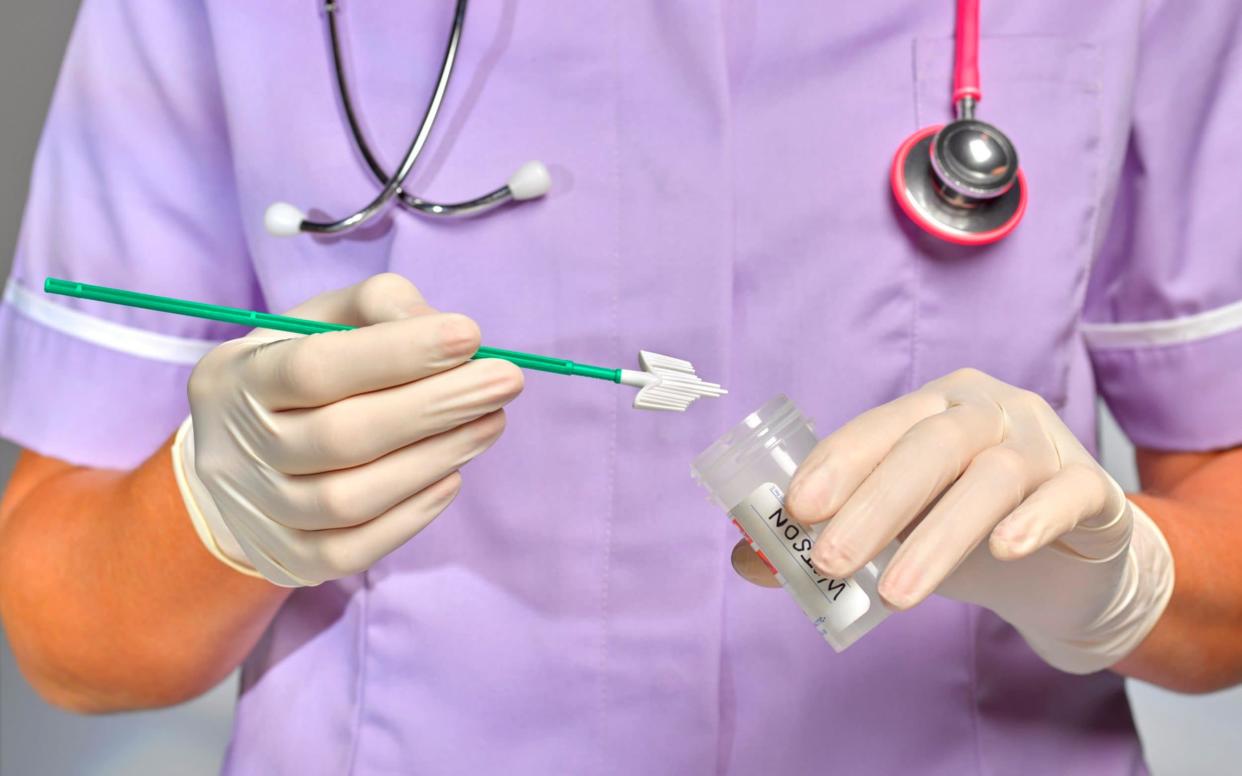Don’t mention women on smear test invitations – ‘it might make trans men feel uncomfortable’

Smear test invitations should not refer to women as it is discouraging trans men from accessing cancer screenings, a new study has suggested.
Researchers said that gender neutral invitations should be used instead to encourage uptake from trans men to get screened.
Jo's Cervical Cancer Trust, a major cancer charity, said that both trans men and non-binary people with a cervix faced "barriers" to accessing screening.
The comments from the charity come as a new study on screening for cervical cancers concluded that there was more work to be done to improve uptake amongst trans men and non-binary people who were assigned female at birth.
One conclusion from the study urged policymakers to introduce measures such as a "body organ checklist" so that test invitations can be sent out to people with a cervix. The researchers also suggested that general screening information, including invitations, should be gender neutral.
Current NHS guidance means that anyone with a cervix between 25 and 64 is eligible for cervical screening, including trans men and non-binary people.
Trans men who are registered as "female" with their GP are automatically sent invitations for a screening. Those who are registered as "male" can still have a cervical screening but need to request an appointment from a GP.
Previous research has found that these groups are less likely to be up-to-date with their cervical cancer screening.
The new study, published in the British Journal of General Practice, polled trans men and non-binary people on their experiences.
Individuals told researchers that "most of the negative points of the experience came from the very women focused design and language" in leaflets.
Another person said that "documents I have seen... are very feminine and woman/she/her-centred, which would make me uncomfortable if I received them".
The authors wrote that "TMNB (transgender men and non-binary people assigned female at birth) lack sufficient information about cervical screening, and experience barriers to accessing screening services at personal, interpersonal, and institutional levels".
Among the 137 respondents, 47 per cent were eligible for cervical screening, yet only 58 per cent of this group had ever been screened for cervical cancer.
Participants described a number of barriers to care including experienced or anticipated stigma and discrimination, and poor understanding of trans-health among healthcare providers.
Some said that having a male "marker" in their GP record meant that they were unable to access routine calls for screening. And a number reported they had been "discouraged" from attending cervical screening because of their gender identity, with one person saying they had been turned away.
Other reasons for not attending included being concerned about how others may react to their gender identity, facing difficult questions and the disclosure of gender identity.
Participants said they would prefer to attend screening at a trans-specific health clinic, with a small number of participants saying they would prefer to self-test at home.
Commenting on the research, Rebecca Shoosmith, acting chief executive of Jo's Cervical Cancer Trust, said: "Accessing cervical screening can be difficult for many people.
"This can be exacerbated for trans men and/or non-binary people with a cervix who face many barriers to accessing routine cervical screening, as well as discrimination because of their gender identity.
"Just as cervical cancer does not discriminate, cervical screening shouldn't either."
Between 2015 and 2017 there were 3,152 new cases of cervical cancer diagnosed in the UK, according to Cancer Research UK (CRUK).
Data from England show that around half (51 per cent) of people diagnosed survive for at least 10 years after their diagnosis. And between 2016 and 2018, 854 people died from the disease in the UK, according to CRUK.

